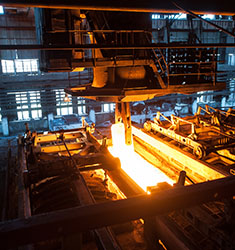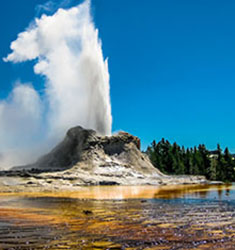Program Description
If you want to explore the world around you and help make the world a better place, consider becoming a chemical engineer. Chemical engineers take chemistry out of the laboratory and into the real world by applying scientific knowledge, technical expertise, innovation, and creativity to make useful materials; without chemical engineering, things like fertilizers, vaccines, and antibiotics wouldn't exist in the quantities that we need them. With their skills and abilities, chemical engineers can be involved in research, development (taking a process from bench scale to full scale), design and evaluation (deciding how a process should work), plant design (deciding how a chemical plant should be built), plant operation, sales, management, and academics. The University of Utah’s Department of Chemical Engineering is nationally recognized for its research and teaching. In this program, you will complete courses in math, physics, chemistry, and engineering. You can also complete an optional emphasis in Sustainable Energy Engineering. By the time of graduation, about 50 percent of our graduates have found employment or been admitted to post-graduate programs that include law, medicine, and graduate school in a variety of fields.
The Student Experience
In addition to your academic pursuits, be sure to get involved in the many organizations and extracurricular activities offered by the Department of Chemical Engineering. The WAChE (Women and Allies in Chemical Engineering) student group provides opportunities for professional development, networking, and peer support to undergraduate woman chemical engineering majors. You can also join the AIChE (American Institute of Chemical Engineers) to network, find jobs in industry, and participate in the ChemE Car Team. The ChemE Car Team participates in national and global competitions, challenging students to build a working compact car that runs only on chemical reactions.
Career Opportunities
A chemical engineer may find work in a number of different fields, such as environmental protection, pollution prevention, biotechnology, electronics, chemistry, petroleum, medicine, and law. Some graduates are consultants, computer system designers, lawyers focusing on patent or environmental law, or brewers of specialty beers. If you decide to further your education, you will be prepared to enter graduate study in medicine, law, business administration, or chemical engineering.
More Info
- Department of Chemical Engineering
- Price College of Engineering
- Department Advising
- U Career Success
Catalog
Exploratory Classes
- CH EN 1703 - Intro to Chemical Engineering
- ENGIN 1022 - Survey of Engineering

 Chemical Engineering
Chemical Engineering


